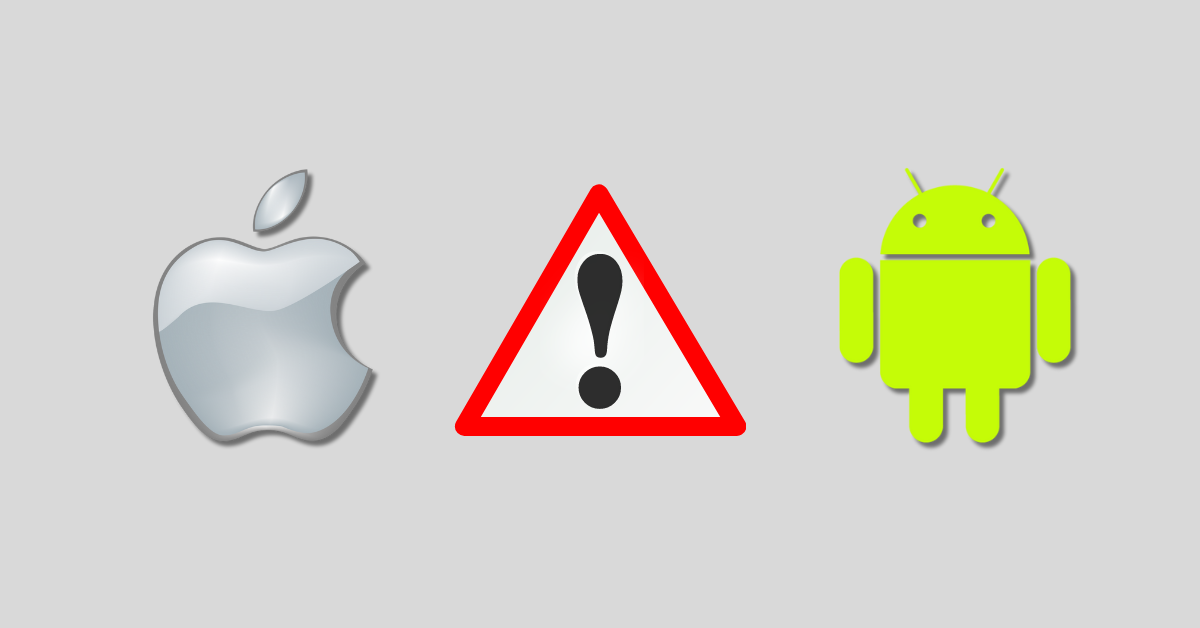
Android vs. iOS: Which OS is Secretly Stealing Your Data? For smartphones, it usually depends on personal preference and functionality for the choice between Android and iOS-based devices. While this is a common reason folks state, another often overlooked one is data privacy. Both operating systems collect data, but the question is—are they secretly stealing it? In this article, we will dive into the data collection practices of Android and iOS, how they have become controversial, and what this means for your privacy.
Practices of Data Collection: The Fundamentals
One way to approach this is that the two are doing exactly the same, collecting user data in order to improve their services and offer experiences tailored for each one. This data can include:
- Location Information: Your current location, where you have been and how frequently you visit particular places.
- Usage Patterns — eg. app use, internet activity or screen time
- Personal Data: Contacts, calendar events, emails and even messages are included in this section.
Nevertheless, the way in which this data is handled by these companies and their use of it diverge greatly.
Android: The Data Giant
Android — We all know that Android is a data gathering behemoth. Android has gained the biggest global market share — more than 70% of users are based on this platform. You’ve heard that “with great power comes great responsibility,” and the same goes for scrutiny.
1. Data Collection Scope:
Google receives data in different forceps like: Google Search, Google Maps, Gmail, Play Store. That data is then used to build detailed profiles of users, which are monetised through targeted advertising.
Androids typically come pre-packaged with Google services that are marketed as enhance the phone- perhaps Play Store, syncing contacts seamlessly, but in reality all they want is your location everywhere and queries you make from the search screen and apps that relay back home all of their usage.
2. Permissions and Apps:
- A lot of Android apps need permission to do stuff that they really don’t need permissions DO Just a flashlight application will ask for a location and contact access!
Between the lines: Because of the more open structure of the Android ecosystem, apps can swipe up information and pass it in ways that wouldn’t fly on iOS without prominent user consent.
3. Third-Party Access:
Android:- It has a more low app environment where third-party apps can easily access user data. This has resulted in many cases of data breaches and unauthorized data regressions.
4. Google’s Stance:
Google says that the data is used to improve the experiences of its users and offer them personalized services. In some instances, however, privacy issues have been implicated in the collection of that information at scale.
Is iOS the Privacy Crusader?
While Apple has touted itself as a bastion of privacy, with frequent boasts that “what happens on your iPhone, stays on your iPhone” But is this really the case?
1. Data Collection Scope:
Apple Privacy: As always, Apple will take user privacy into consideration. For instance, it gathers usage data using differential privacy, meaning your activity can’t be individually tied back to you.
Features that require user permission related to tracking in iOS devices. — App Tracking Transparency: Present you the option for apps to request your permission before they track you from app to app or share you data with data brothers.
2. Permissions and Apps:
- Lesser Data access Permissions : In iOS apps, data access permissions are given less as compared to the android. For example, background location data cannot be accessed by apps without the user giving their consent.
Apple has a measure of tightening related to its App Store guidelines and apps being submitted which violate user privacy policies are eventually removed by the company.
3. Third-Party Access:
Apple has more control over third-party access to user data. But in the past, iOS apps have been called out for harvesting data in privacy-threatening ways.
4. Apple’s Stance:
Apple has also tried to limit the data it collects, which it says is based on users who have agreed to share information. But, it again does amass a great deal of data via services like iCloud, Siri, and Apple Maps.
The Controversies
Last year, both Android and iOS came under fire for.
1. Android’s Woes:
In 2018, we learned Google was monitoring the movements of Android users even when location services were disabled This resulted in a serious backlash and eventually Google had to answer on what data it collects.
There have been many reports of others developing Android apps that are phoning home with user data without permission, which raises the issue over how secure is the Android ecosystem.
2. Apple’s Challenges:
Apple, though taking a firm privacy stance of its own, has been roasted for approving third-party apps that are leaking user data without explicit permission. In 2019, some of most popular iOS apps were found to be recording user screen interactions without their consent.
Apple has faced criticism as well for using user privacy as a crutch to market itself where it promptly collects a vast amount of data from users accessing its own services.
Which OS Robs You Of Most Data?
Which Means More Of Your Data Stolen Between Android Or iOS? It all depends on what you mean by “stealing.” In terms of the data gathered, if we are speaking purely about quantity, Android quite likely captures even more — all thanks to Google and its vast ecosystem. Apple is still no saint, on the other hand, they are pretty good but do collect a lot of information about you but at least its more transparent and controllable by the user.
Protect Your Data — What You Can Do
No matter which OS you use, here are things you can do to ensure the safety of your data:
- Check App Permissions: Periodically audit and update app permissions to allow only what’s needed.
- Leverage Built-in Privacy Features: Make use of privacy features such as the Android Privacy Dashboard and iOS App Tracking Transparency.
- Stop Sharing Your Location: Disable location sharing for apps that aren’t useful for.
- When using Apps, make sure to use privacy focused apps, like DuckDuckGo for browsing or Signal in messaging.
Conclusion
And while both Android and iOS have certain strengths and weaknesses when it comes to data privacy, the best policy is vigilance — keep up-to-date with news on this and other data issues so you can protect your own information. The row surrounding digital privacy rumbles on, with no OS free from such data collection practices. Ultimately, you got one chance to pick Android or iOS based on how much money and privacy considerations are important when using your phone.

